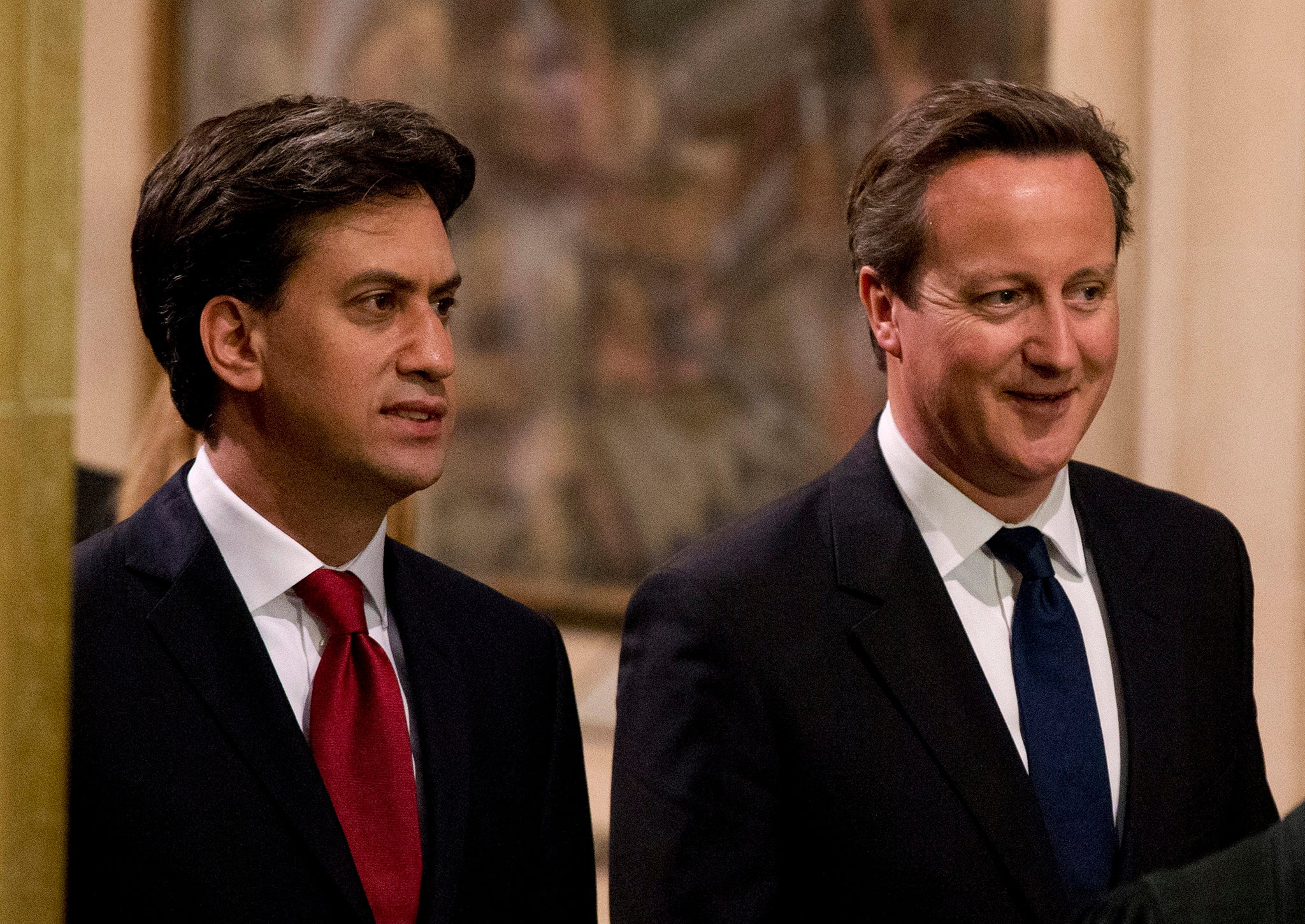Syria air strikes: This time, David Cameron made sure of Ed Miliband’s support
After last year's embarrassing defeat in the Commons over Syria, Cameron would have been foolish not to consult his rival


David Cameron and Nick Clegg both wondered whether they could ever trust Ed Miliband again, after his last-minute act of sabotage in August last year which meant the Commons voted 285 to 272 against air strikes in Syria because of the Assad regime’s use of chemical weapons against its own people.
What a difference a year makes. MPs have just voted 524 to 43 in favour of air strikes against Isis in Iraq. Still scarred by his embarrassing defeat over Syria, Mr Cameron dared to ask the Commons to authorise action only after turning again to Mr Miliband and making absolutely sure the Labour opposition would support him this time.
Last year’s bust-up hung in the air when the Prime Minister, who was in New York, and the Labour leader, who was at Labour’s conference in Manchester, spoke on the telephone at 8am New York time on Wednesday. Mr Cameron’s aides described the 10-minute conversation as “business-like”. Mr Cameron told Mr Miliband he needed “certainty”. Mr Miliband said he wanted to be “helpful” but had to consult his Shadow Cabinet first. It was only after they backed bombing in Iraq that the PM could announce a recall of Parliament, five hours after the phone call. The PM did not press the case for extending the action against Isis in Syria. He knew that would be a step too far for Labour now – and for some Tory backbenchers.
Mr Cameron told MPs yesterday he wanted to proceed by “consensus”. You bet he did. Marching slowly to war was much better than another humiliating defeat he could not afford.
The PM made clear he would like to extend air strikes to Isis targets in Syria. The Labour leader wants such a move to be “tested” at the United Nations Security Council. Tory ministers claim Mr Miliband is reprising last year’s role, accusing him of “playing games” because he knows Russia would veto any action in Syria. Labour officials deny the charge, insisting that UN votes do not always turn out as predicted. They say that “testing” the Syria issue does not mean Labour would refuse to support action if no UN resolution were passed.
Some Tory ministers blame Labour for the UK being a “Johnny-come-lately” to the US-led air strikes. Yesterday Mr Cameron talked up what the British military could bring to the party. Privately, ministers admit the UK’s involvement is largely symbolic. “The Americans are happy to have us on board but they don’t need us,” one said.
As Mr Cameron acknowledged, the cloud of the 2003 Iraq war hung heavily over yesterday’s debate. The mood among MPs was to accept, reluctantly, that something must be done about Isis, but to limit the action for now. There were genuine and well-founded fears of “mission creep”. But Mr Cameron will be encouraged that some Labour and Tory MPs accepted the logic of taking action in Syria too. “This cuts across parties; it is not a Tory versus Labour issue,” said one Tory aide.
The Commons motion approved yesterday said that the Government “will not deploy UK troops in ground combat operations” – another nod to 2003.
If I had received £5 every time I heard a politician say in recent weeks that there will be no British “boots on the ground”, I would be able to buy several pairs of boots.
Mr Miliband’s approach has also been heavily shaped by events in 2003. He won the Labour leadership in 2010 as the “not Blair” candidate. Iraq was a big, dividing issue with his brother David, doomed to be seen as the Blairite standard-bearer who voted for the war as a backbench MP. Ed, a Treasury adviser, was at Harvard University. He disclosed during the leadership campaign that he opposed the war at the time, which friends corroborate but came as news to his brother.
Although the Labour leader could find himself overseeing a long war against Isis as PM in just eight months, he has said remarkably little about his approach to foreign policy – with the exception of Europe, where he has been bold in rejecting pressure to match the Tory promise of an in/out referendum. He regards himself as an “active multilateralist”.
A long-awaited foreign affairs speech was due during a visit to India, but he called off the trip because of the floods in Britain. That was in February. The speech hasn’t happened yet. Addressing the Labour conference on Tuesday, Mr Miliband devoted only 215 of his 8,000 words to Isis.
Like Mr Cameron, Mr Miliband has to take his MPs with him and does not want to split his party, a factor which could limit his room for manoeuvre. Labour rejects Tory claims he is “playing to the gallery” on Syria, insisting his approach to military action has been consistent. His “five tests” are: a just cause; that such action is a last resort and is proportional; has a reasonable prospects of success; a legal base; and broad regional support.
For Mr Miliband, the two key tests on Syria will be the prospects of success and whether military action would be a last resort. “We are not saying ‘no, never’,” one aide said.
Slowly but surely, Britain is edging towards a bigger military operation than the limited one approved by MPs yesterday.
Join our commenting forum
Join thought-provoking conversations, follow other Independent readers and see their replies
Comments
Bookmark popover
Removed from bookmarks